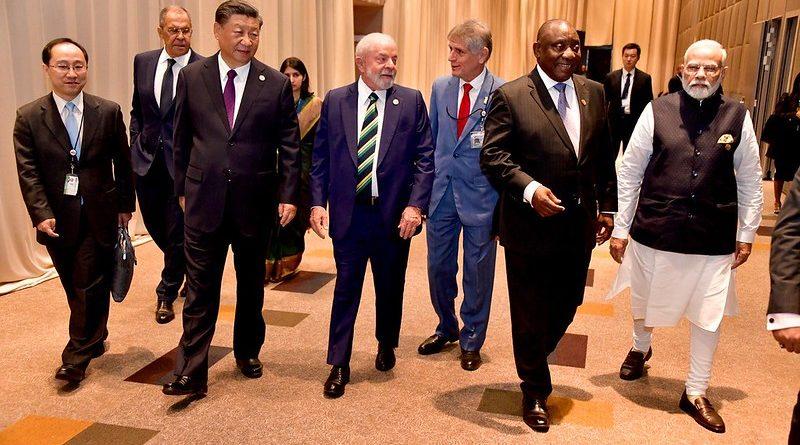The second day of the 15th BRICS Summit, which takes place in the city of Johannesburg, South Africa, was marked by the rejection of any type of hegemony and neocolonial policy that Western governments seek to impose against the countries of the global South.
From the Sandton Convention Center, the BRICS quintet established a position on the international scene of hegemonism and defends the interests of disadvantaged peoples.
In opposition to hegemonism, the BRICS propose to create a multipolar world based on international law, including peace, in addition to the challenges facing humanity:
«The world is changing. The new economic, political, social and technological realities demand a greater cooperation between nations. These realities call for a fundamental reform of global governance institutions so that they are more representative and more capable of responding to the challenges we face,” said South African President Cyril Ramaphosa at the end of the second day of debate.
In this sense, the President of Russia, Vladimir Putin, expressed during his speech -via videoconference- that the group of Brazil, Russia, India, China and South Africa advocates the increased participation of Member States in the international financial and economic system and the development of interbank cooperation.
Similarly, the Russian president called on the group to expand the use of national currencies in mutual agreements and interbank cooperation.
Meanwhile, Brazilian President Luiz Inácio Lula da Silva said that the South American giant «is willing to join diplomatic efforts to achieve peace in Ukraine.»
Likewise, he expressed that with the expansion of members, the block will maintain a geographical balance and representation in the financial processes and investment with other countries.
In context, the President of the People’s Republic of China, Xi Jinping, insisted on the expansion of the mechanism, which will allow economic growth in order to increase the presence and influence of this power in the world:
“It is about cooperation in politics, digital economy, green development, supply chains to contribute to exchanges in the economy, trade and finance, as well as maintaining peace and tranquility,” he said.
On his behalf, Indian Prime Minister Narendra Modi, assured the BRICS seek to destroy barriers, revitalize the economy, promote innovation, create opportunities and provide a better way for the future of the peoples:
«United, all BRICS members, we will continue to actively contribute to making sense of this new definition of a world geopolitics,» said Modi.
